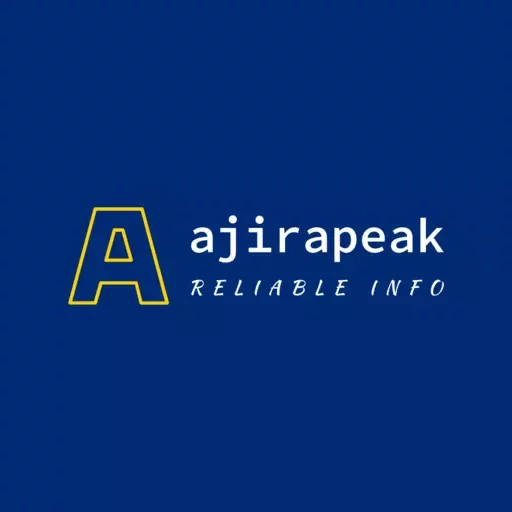PHD AND MSC. SCHOLARSHIPS TENABLE AT THE UNIVERSITY OF DAR ES SALAAM
The University of Dar es Salaam, Institute of Resource Assessment, which is a partner institution in the BC5 research project, is pleased to invite interested and qualified candidates to apply for 3 PhD and 2 Masters Partial Scholarships under the BC5 research project.
The BC5 Research Project
Building Capacity to Crosslink Coastal Pollution with Climate ChangeBC5 is a strategic north-south-south collaboration between the Norwegian University of Science and Technology (NTNU), the University of Ghana (UG) & affiliated collaboration by University of Dar Es Salaam, Tanzania. BC5 addresses the thematic area “Climate Change and Natural Resources” under NORHED II. BC5aims at building knowledge on sustainable management of marine and coastal ecosystems and resources, strengthening & improving existing regional coastal research. Under this project research activities are parallel and intertwined with capacity enhancement in education through the establishment of field & experimental training & curriculum development on the combined impact of coastal contamination & climate change on coastal ecosystems in Ghana and Tanzania. BC5’s activities are based on the objectives set by Sustainable Development Goals (SDGs) 14, Life under water, and other cross cutting relevant SDGs. Both Ghana & Tanzania lack crucial data and knowledge on the status of their marine environment. BC5 thematic focus is on the impacts of contaminants (i.e. plastics, e-waste, mining, (pesticides) and nutrients) from agricultural runoff, non-climatic stressors in combination with climatic stressors, on the marine and coastal environment.
Research Studies for the solicited 3 PhD and 3 Masters Students at UDSM will focus on either of the following Case Studies:
Case studies in Tanzania. Two main cases have been selected to study in Tanzania, based on their, accessibility, physical characteristics and social impact:
Case study A: The Mnazi Bay-Ruvuma Estuary -Mbanya regions:
This region starts at the border of Mozambique and is famous for its marine biodiversity. In this zone, the focus will be the perspective of the Ecological connectivity between Areas Beyond National Jurisdiction (ABNJ) and the coastal zones. Selection of this coastal region is due to the level of their exposure to potential downstream impacts of the ABNJ. Any adverse developments and contaminants in the ABNJ may have a strong negative impact on the coastal resources and population of the Least Developed Countries (LDC) in East Africa. Tanzania is the most affected country due to its highly connected coastal zones to the ABNJ.
Specific areas of focus under this case study:
- Coastal pollution and coastal ecosystem management
- Climate change and socio-ecological systems of coastal resources
- Climate change impacts on the coastal ecosystem management
- Socio-ecological systems of mangroves under man-made and natural stressors.
- Nature based solutions for sustainability of coastal ecosystems
- Sustainability of mangrove ecosystems
Case study B: Dar es Salaam – Zanzibar – Pemba Island zone:
The region includes heavily populated Dar es Salaam and Zanzibar zones, where we will study human-made impact on the coastal ecosystem. Coastal pollution is increasingly becoming a source of concern in Dar es Salaam and Zanzibar. Coastal pollution including the untreated municipal wastewater discharged into
coastal waters and in some places directly onto coastal habitats, such as mangroves, is having serious impacts on the natural environment and potentially on the economic base that many of the islanders depend on. Deterioration of mangroves, seagrass beds and coral reefs creating risk to the livelihoods of several coastal communities.
Specific areas of focus under this case study:
- Coastal pollution (coastal erosion, land use change, agriculture, mining, including plastics and e-wastes, settlement, illegal fishing – dynamite fishing) and coastal ecosystems management and impacts analyses on the coastal ecosystem.
- Coastal pollution (untreated municipal wastewater – industrial and domestic). Effects on coastal habitats, such as mangroves (i.e. natural environment) and associated impacts on the socio-economic systems/livelihoods strategies (e.g. deterioration of mangroves, seagrass beds and coral reefs creating risk to the livelihoods of several coastal communities).
- Coastal mining (sand/soil) & implication on ecosystem management
- Sea surface temperature (SST) and its implications on the fisheries, marine/coastal ecosystems and livelihoods of coastal communities
General conditions for the PhD and MSc. Scholarships:
- The PhD and MSc. positions are partially funded, encompassing Tuition fees as per UDSM postgraduate studies rates, and research travel costs and supplies as per the project budget.
- Successful PhD and MSc. Candidates will be enrolled at the Institute of Resource Assessment (IRA) to pursue a PhD or MSc. Natural Resource Assessment and Management, or a PhD or MSc. Climate Change and Sustainable Development.
- The duration of the PhD and MSc. Scholarships is 3 and 1.5 years respectively. The scholarships will start in March 2022.
- The PhD and MSc. Students are expected to undertake fieldwork in the said case study areas.
- The PhD and MSc. students are expected to fully participate in BC5 project activities; as well as adhere to UDSM Postgraduate studies regulations, and
- Both PhD and MSc. candidates should demonstrate capacity and willingness to publish at least one article for the MSc. and two for PhD Candidates
Eligibility criteria
a) The 3 PhD Scholarships (Focus in identified Case Studies)
- A master’s degree in fields related to Natural Resources Assessment and Management, water resources/environmental engineering, Climate change, Marine Ecosystem and, Environmental Sciences and management, Geography and Environment, Biodiversity, Aquatic sciences, or other relevant fields.
- Be highly motivated to develop an academic career and to pursue a fulltime doctoral scholarship.
- Be willing to conduct fieldwork in case studies and preferably possess previous fieldwork experience.
- Be willing to travel and actively participate in the BC5 project activities. Possess good writing and communication skills.
- Be a smart, hardworking, constructive and engaged research team worker.
b) The 3 MSc. Scholarships (Focus in identified Case Studies)
- A Bachelor’s degree in Environmental management, Climate change, Marine Ecosystem and, Environmental Sciences and management, Geography and Environment, Biodiversity, Aquatic sciences, or other relevant fields.
- Be highly motivated to develop an academic career and to pursue a fulltime MSc. Scholarship.
- Be willing to conduct fieldwork in case studies and preferably possess previous fieldwork experience.
- Be willing to travel and actively participate in the BC5 project activities.
- Possess good writing and communication skills.
- Be a constructive and engaged team worker.
Application process
Submission of the application for both PhD and MSc. scholarships should be accompanied by the following documents:
- A detailed CV stating the applicant’s educational and professional history
- Copies of academic certificates and transcripts
- An electronic copy of the applicant’s relevant publications
- Contact details of two references
- If possible, an admission letter
In addition to the above requirements, the Applicants who seek to obtain the PhD Scholarships should submit Research Concept Notes that are focused on either Case Study I or II as per detailed information in this Advert. The concept note regarding the proposed PhD research work should be about 4 pages (max 1,600 words, excluding references). The following details must be included:
- Statement of the research problem
- Research questions
- Theoretical framework or Conceptual Framework
- Selection and rationale thereof of the proposed case study area
- Methodological approach, including fieldwork considerations
- Time plan
Application Procedures
Applications should be sent by email with the subject titles ‘BC5 PhD scholarship application’ and ‘BC5 Masters scholarship application’ to the Director, Institute of Resource Assessment (ira@udsm.ac.tz) and copy to Dr. Catherine A. Masao (ndeutz@yahoo.com) (Project contact Person).
Incomplete or delayed applications will NOT be considered. The assessment committee will consist of a panel of UDSM and BC5 researchers. Only successfully candidates will be notified through email that will be followed by contractual agreement between parties.
The deadline for submitting the application is 15th March 2022 at 1600hrs (East African Time).
CLICK TO VIEW OFFICIAL ANNOUNCEMENT


